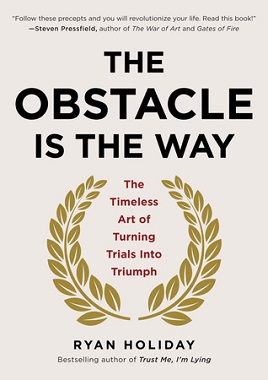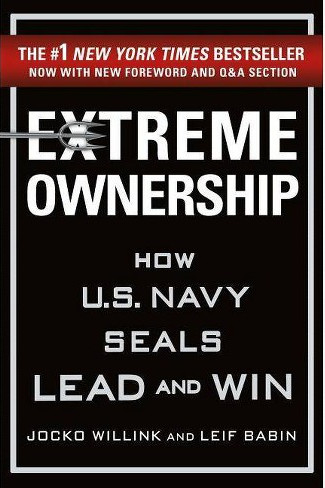Contrarian investing, a strategy that involves going against the prevailing market sentiment, has gained popularity among savvy investors seeking to capitalize on market inefficiencies. In this article, we’ll delve into the world of contrarian investing, exploring its history, strategies, risks, and the essential tools for success.
Unconventional Wisdom: Contrarian Investing 101
Introduction
Definition of Contrarian Investing
Contrarian investing is rooted in the belief that the majority is often wrong about the direction of the market. Instead of following the crowd, contrarian investors take positions that oppose prevailing sentiments, aiming to profit when the market corrects itself.
Importance of Unconventional Wisdom
The ability to think differently and act against the crowd is a hallmark of successful contrarian investors. Unconventional wisdom allows them to identify opportunities that others may overlook.
Historical Perspective
Famous Contrarian Investors
Iconic figures like Warren Buffett and John Templeton are celebrated for their contrarian approaches, proving that unconventional wisdom can lead to substantial financial gains.
Key Moments in Contrarian Investing History
Examining pivotal moments, such as market crashes and recoveries, provides insights into the effectiveness of contrarian strategies.
The Basics of Contrarian Investing
Going Against the Crowd
Contrarian investors actively seek situations where market sentiment diverges from underlying fundamentals. This involves going against the crowd and embracing opportunities when others are fearful.
The Logic Behind Contrarian Investing
Contrarians believe that the market is inherently inefficient, meaning that asset prices do not always reflect their intrinsic value. This inefficiency arises from the emotional biases and herd mentality of investors, who often make decisions based on fear, greed, or the desire to conform.
By swimming against the tide, contrarians aim to capitalize on these market inefficiencies. They believe that by purchasing undervalued assets, they can acquire them at a discount and hold them until their true value is realized, generating substantial profits in the process.

Key Principles of Contrarian Investing
There are several key principles that guide contrarian investors:
- Independent Research: Contrarians must conduct thorough research to identify undervalued assets. They cannot simply rely on popular opinion or media hype.
- Patience and Discipline: Contrarian investing is a long-term strategy. It requires patience and discipline to hold onto undervalued assets when others are selling them.
- Emotional Detachment: Contrarians must be able to withstand the emotional pressures of the market and avoid making impulsive decisions based on fear or greed.
- Diversification: While contrarians focus on undervalued assets, they also recognize the importance of diversification to mitigate risk.
- Risk Tolerance: Contrarian investing is a higher-risk strategy than traditional investing. It is not suitable for all investors.
Identifying Market Mispricing
Contrarian investors excel at recognizing mispriced assets, leveraging market inefficiencies for profitable investments.
Identifying Market Mispricing
Contrarian investors identify market mispricing by looking for signs of extreme optimism or pessimism. This can be reflected in factors such as high levels of market volatility, excessive media coverage, or widespread investor euphoria during bull markets. Conversely, extreme fear, panic selling, or a lack of attention to certain assets may indicate potential buying opportunities.
Strategies for Contrarian Investing
Value Investing
Contrarian investors often adopt a value-oriented approach, identifying undervalued assets with strong growth potential.
Price-to-Earnings Ratios (P/E)
Examining the P/E ratios of individual stocks or broader market indices helps contrarian investors assess whether assets are overvalued or undervalued relative to historical norms. A low P/E ratio might suggest undervaluation, while a high ratio may indicate overvaluation.
Price-to-Book Value Ratio (P/B)
1. Understanding the Price-to-Book Value Ratio:
The P/B ratio is calculated by dividing a company’s market capitalization by its book value, which is the difference between total assets and total liabilities. The ratio signifies how the market values a company in relation to its net assets.
2. Identifying Undervalued Opportunities:
Contrarian investors often seek stocks with low P/B ratios, indicating that the market values the company below its book value. A P/B ratio below 1 suggests the market is valuing the company at less than the stated value of its assets, potentially signaling an undervalued opportunity.
3. Contrarian Approach to High P/B Ratios:
Conversely, contrarian investors might also scrutinize stocks with high P/B ratios. A high P/B ratio may indicate the market’s optimism about a company’s future growth and profitability. Contrarians may question whether the optimism is warranted, potentially uncovering overvalued stocks in the process.
Fundamental Analysis
Contrarians delve into fundamental analysis to assess a company’s financial health, growth prospects, and competitive position. By focusing on the underlying fundamentals, investors can identify discrepancies between a company’s intrinsic value and its market price.
Sentiment Analysis
Analyzing market sentiment helps contrarians gauge the prevailing mood, allowing them to identify opportunities for contrarian plays.
Contrarian investors often analyze sentiment indicators, such as the CBOE Volatility Index (VIX) or various sentiment surveys. Elevated levels of fear, as reflected in a high VIX, may signal a market bottom, while excessive optimism can indicate a potential top.
Market Timing
Contrarian investing requires patience, but effective market timing is crucial for maximizing returns.
Long-Term Perspective
Successful contrarian investors focus on the long term, avoiding short-term noise and fluctuations.
Risks and Challenges
- Market Timing Risk: Contrarian investing often involves anticipating market reversals or shifts in sentiment. Timing the market is notoriously challenging, and mistimed contrarian moves can result in losses if the market sentiment persists longer than expected.
- Behavioral Bias Risk: Contrarian investors need to be aware of their own behavioral biases and emotions. Acting against the prevailing market sentiment may be emotionally challenging, and succumbing to herd behavior during market extremes can lead to suboptimal decisions.
- Overlooked Fundamentals Risk: While contrarian investors focus on market sentiment, there is a risk of overlooking underlying fundamentals. It’s crucial to conduct thorough fundamental analysis to ensure that the contrarian move is based on a genuine mispricing and not a fundamental deterioration of the asset.
- Extended Periods of Underperformance: Contrarian strategies may not yield immediate results, and investors might experience extended periods of underperformance. This can test the patience and discipline of investors, especially if the market sentiment takes time to shift.
- Lack of Diversification Risk: Over-concentration in contrarian positions can expose investors to heightened risks. Diversification is a key risk management tool, and failure to diversify across various assets or sectors can amplify the impact of adverse market movements.
- Market Sentiment Misjudgment Risk: Contrarian investors need to accurately judge when market sentiment has deviated from fundamentals. If the misjudgment occurs, it can result in entering contrarian positions prematurely or missing genuine opportunities.
- Economic and Geopolitical Risks: External factors such as economic events, geopolitical tensions, or unforeseen global crises can impact contrarian strategies. These external risks are difficult to predict and can lead to unexpected market movements.
- Liquidity Risk: Some contrarian opportunities may involve less liquid assets or markets, posing challenges when it comes to buying or selling positions. Liquidity risk can impact the execution of trades and contribute to price slippage.
Success Stories
Several legendary investors have successfully applied contrarian principles, including:
- Warren Buffett: Buffett, widely regarded as the greatest investor of all time, has made a career of identifying and investing in undervalued companies.
- Benjamin Graham: Graham, known as the “Dean of Value Investing,” emphasized the importance of intrinsic value and pioneered the use of quantitative analysis to identify undervalued stocks.
- John Templeton: Templeton, a pioneer of global investing, famously advised investors to “buy when others are fearful and sell when others are greedy.”
- Howard Marks: Marks, a renowned investor and author, emphasizes the importance of contrarian thinking in avoiding market bubbles and identifying undervalued assets.
- Jim Chanos: Chanos, a short-seller and contrarian investor, has made a name for identifying overvalued companies and betting against their success.
How to Start Contrarian Investing
Research and Analysis
Thorough research and analysis form the foundation of successful contrarian investing.
Building a Diversified Portfolio
Diversification mitigates risks, ensuring that contrarian investors don’t overly expose themselves to a single asset or market.
Patience and Discipline
Contrarian investing requires patience and discipline to withstand short-term market fluctuations.
Contrarian Investing in Different Markets
Stocks
Contrarian strategies are commonly applied in stock markets, where market sentiments can be particularly pronounced.
Cryptocurrencies
Digital assets provide unique opportunities for contrarian investors willing to navigate the volatile cryptocurrency market.
Real Estate
Contrarian approaches extend to real estate, with investors capitalizing on market imbalances.
Debunking Common Myths
Contrarian Investing is Risky
While contrarian strategies involve risks, thoughtful approaches can mitigate potential downsides.
It’s Only for Experts
Contrarian investing is accessible to anyone willing to learn and apply unconventional wisdom. Contrarian investing is not exclusively reserved for experts; investors with varying levels of experience can engage in contrarian strategies. While expertise can enhance the effectiveness of contrarian approaches, it’s not a prerequisite for getting starte
Contrarian Investing Means Always Betting Against the Trend
Contrarian investing is not about blindly opposing market trends; rather, it involves critically assessing prevailing sentiments and identifying situations where the market may be overreacting. A contrarian investor may go against the crowd, but this decision is rooted in a thorough analysis of fundamental factors and potential mispricing.
Contrarians Always Pick Unpopular Stocks
While contrarian investors often seek undervalued or overlooked opportunities, it doesn’t mean they exclusively invest in unpopular or struggling stocks. Contrarian investing is about identifying situations where market perceptions deviate from a company’s true value, whether that leads to investing in undervalued gems or capitalizing on overhyped stocks.
Timing the Market is Impossible for Contrarian Investors
Contrarian investing doesn’t require pinpoint timing of market reversals. While it’s challenging to identify the exact bottom or top of a market cycle, contrarians focus on assessing risk-reward ratios and identifying entry points based on fundamental analysis. Successful contrarian investing is more about strategic patience than precise timing.
Contrarians Ignore Market Trends Completely
Contrarian investors don’t ignore market trends; rather, they approach them with a discerning eye. They recognize the significance of trends but also understand that markets can sometimes overreact. Contrarians analyze whether the prevailing sentiment aligns with the underlying fundamentals, seeking opportunities when a deviation occurs.
Contrarian Investing Guarantees Profits
Contrarian investing, like any strategy, carries risks, and not every contrarian move guarantees profits. Markets can remain irrational for extended periods, and contrarian positions may take time to materialize. Success in contrarian investing requires discipline, thorough research, and a realistic understanding of market dynamics.
Contrarians Always Go Against the Herd
Contrarian investing doesn’t mean always opposing the majority. It involves critically assessing market sentiment and making decisions based on a comprehensive analysis of the situation. In some instances, contrarians may align with the prevailing trend if it aligns with their analysis of the underlying fundamentals.
Contrarian Investors Ignore Technical Analysis
Contrarian investors use a combination of fundamental and technical analysis. While fundamental analysis helps assess the intrinsic value of assets, technical analysis can provide insights into market trends, patterns, and potential entry or exit points. Contrarian strategies often involve a well-rounded approach that incorporates both methodologies.
Contrarian Investing Is a One-Size-Fits-All Approach
Contrarian investing is not a rigid, one-size-fits-all approach. Successful contrarians adapt their strategies to different market conditions, industries, and economic cycles. Flexibility and the ability to adjust to changing circumstances are key principles of contrarian investing.
Tools and Resources for Contrarian Investors
Online Platforms
Various online platforms provide tools and information crucial for contrarian decision-making.
Educational Materials
Continuous learning is vital for contrarian investors; educational resources contribute to their success.
Staying Informed
News and Market Trends
Staying informed about current events and market trends is essential for contrarian investors.
Networking with Other Investors
Networking provides valuable insights and diverse perspectives, enhancing contrarian strategies.
The Future of Contrarian Investing
Emerging Trends
Contrarian investing continues to evolve, with emerging trends shaping its future landscape.
Opportunities and Challenges
Anticipating opportunities and challenges ensures contrarian investors stay ahead in a dynamic market.
Conclusion
Recap of Contrarian Investing
Contrarian investing empowers individuals to challenge conventional wisdom, offering unique opportunities for financial growth.
Encouragement to Explore Unconventional Paths
Embracing unconventional wisdom opens doors to innovative approaches, fostering personal and financial growth.
FAQs
What is the main principle behind contrarian investing?
Contrarian investing revolves around going against prevailing market sentiments to identify undervalued opportunities.
Can anyone become a contrarian investor?
Yes, contrarian investing is accessible to individuals willing to learn and adopt an unconventional mindset.
How do contrarian investors handle market downturns?
Contrarian investors remain patient, often using downturns as buying opportunities for undervalued assets.
Are there any contrarian investing success stories in recent years?
Several, including instances where investors profited by going against popular market trends.
What role does research play in contrarian investing?
Research is fundamental; thorough analysis helps contrarian investors identify mispriced assets and make informed decisions.



